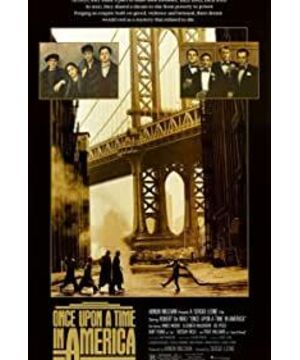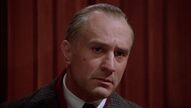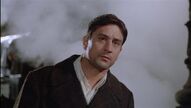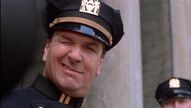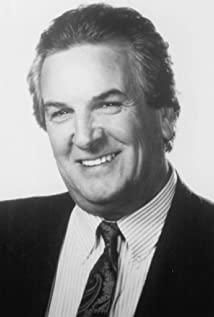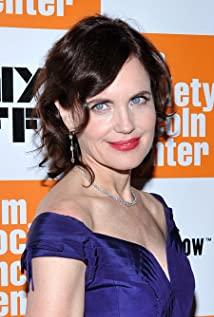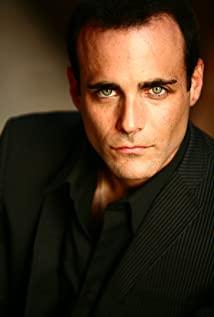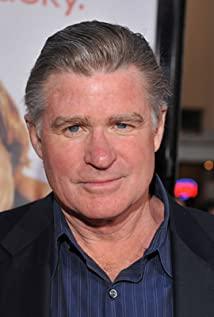Another important narrative rhetoric strategy in the film is to effectively hide Max’s point of view in Norders’ first-person narrative. In the process of watching the film, people have no doubt that, like the original, this is an "autobiographical" film. The storytelling and the presentation of events are not only internally limited to Norders’ viewpoint (witnessing, presence) [see author: "Film and Viewpoint Narrative", a correspondence teaching material of the Department of Literature of Beijing Film Academy. The author believes that the scene presented by the personal narrative in the film must be based on the presence and witnessing of the character], and as a memory of Norders, it is also infiltrated by Norders' sadness and reminiscence. In fact, this is only presented by the analogy structure of the image, and in the independent structure of the image, there is always Max’s viewpoint lens. In some important scenes, it is Max’s viewpoint lens instead of Norders’ viewpoint. The agent of the narrative. As early as Max broke into the world of Norders for the first time, the narrator has given Max a superior point of view: an overhead view shot from a high place—the top of Max’s carriage, which captures Norder’s Si and his little brother appear as a group of sneaky and difficult-to-achieve street wanderers. At the same time, the vertical cut shot between Max and Norders has confirmed the relationship between power and position in the future. But the extremely secret scene of the first date between Norders and Debra was exposed to the sight of the peeper Max.
In the combination section 15, at the end of the 1920s story, there is an important lens section implied, which contains a reversal of the viewpoint lens [see the author: "The Opposite Shot and Film Narrative", "Film Creation" 1991 Year 3. The author believes that the distribution of viewpoints and shots in film narration, as Foucault has discussed, is the distribution of discourse power in social life; in other words, the viewpoint and discourse power in movies are equivalent. ]. After the prisoner escorting Norders slowly passing the panoramic view of the corner of the street, it was a close-up shot of Norders behind the bars of the prisoner car, and he looked at the distance out of the window with attachment. The counter-attack was his long-term perspective. Under the high wall opposite the prison, the three brothers of Max were standing there, and Fatty Mo also hurried over. Switching to the close-up shot of Norders again, with tears in his eyes, he tried to show a smile to his friends. Point of view/anti-shooting: The camera slowly pans to take pictures of the four brothers in need in the distant scene, an infinite and affectionate stare of Norders and a nostalgic farewell. A close shot of Norders appeared for the third time, and he raised his hand to wave goodbye to his friends. When Max and the others in the distant scene were hit again, the picture was with the prison bars and the hand waving goodbye from Norders as the foreground. But next, it was the prison car in the panorama, which seemed to be an objective statement lens. But after that, Max’s close-up shot defines Max’s point of view in the previous shot. Fight back: The prison car drove slowly into the prison, and the heavy iron gate seemed to be closed in front of us. Switch to Max's close-up again, and the camera gradually moved to a close-up. In this long shot, Max raised his eyes with understanding and cast his gaze to the unknown place in the distance. This is not only a moment of reversal of perspective, but also a moment of reversal of meaning, and at the same time a turning point in Max's mental journey. At this moment, Max denied the road of street gangsters/gangsters from the experience of Norders. There are only two destinations on this road-one is the street with corpses like Bagsey, and the other is Noord. He went to jail like a slam. This is undoubtedly the specific presentation of the film narrator and the independent lens of the image: because at this time, the narrator/Nudels in the narrative is no longer on the scene, he has been closed behind the iron gate, which will take 12 years It will be opened to him later. However, this obvious Max’s point of view lens was once again successfully obscured in the text. Next, is the golden inscription on the white marble tomb in the shot upwards: "You young and strong will fall under the sword." It seems to be Max's vision in the previous shot. But the camera reversed, and the picture showed the old Norders in 1968, looking up at the inscription with mixed emotions.
The more important one is the tragic night of the lifting of Prohibition (combination paragraph 25). In fact, this paragraph begins with a large close-up of Max. In this shot, Max's face is mostly hidden in the shadows, only his eyes flashing coldly. The visual narrative of this passage establishes the gazes of three people intertwined and avoiding each other. The first is the anxious and guilty Norders, who refuses to exchange eyes with anyone. In order to fulfill the promise of concentric life and death, in order to save his "crazy" friend, he must do his most shameful deed: inform the police. The second was Carol's anxious, trying to hide her gaze. She turned her gaze to Norders time and time again, urging him to do what he "should do". The most important thing is Max's keen and seemingly nonchalant gaze. The gaze and behavior of Nordles and Carol are always under the surveillance and control of this gaze. Max is like a director, supervising the execution of every detail of this repertoire. In fact, even the collusion between Norders and Carol and Norders’ whistleblower are part of Max’s actions and plans. It was from his subtle hint that Carol got "inspiration" and made suggestions to Norders. (The so-called "I got this idea from your friend. He always makes fun of you, saying that every time you pass here, you have to wet your pants, saying that you always try to get the police on guard, so that you can't do this." This action.”) So, through Norders, Max will use the police to wipe out all his companions and seize their property without showing a trace. At the same time, he successfully “eliminates” the bootlegger and the gang Max. So that he can change his head and make a good progress. In this passage, it was Carol's gaze that obscured Max's point of view and his true motives. At this moment, the audience tends to refer to Max's gaze as a certain doubt in the identification of Norders' viewpoint and the independent structure of the image. In fact, when Norders made up his mind and walked to the office, it was Max who watched him until he closed the door behind him. He waited until there was enough time before Max knocked on the door. He walked into the room and seemed to straighten the phone receiver that Norders had hung up in a panic. At this time, he was completely relieved: everything was foolproof. The film "Once Upon a Time in America" thus made a fascinating story, a myth about the United States, and at the same time became a dismantling of the American myth.
Ⅲ. Man·Woman·Structure
In the film "Once Upon a Time in America", Leoni follows another important frame of reference of mainstream discourse-women-to structure the front and back of the American dream of Nordles/Max. In the motive model of the classic narrative, women, as the most common actor of the object, are always the pursuit and search object of the male/hero actor. "The hero saves the beauty"-the hero fights and adventures for the beautiful woman, and the woman is the trophy for the hero to win, a trophy second only to the Holy Grail or the crown. The successful conquest and possession of women is a potential frame of reference for identifying and measuring the success of heroes, and at the same time intuitively becomes the exercise and realization of the power of Phallus. In "Once Upon a Time in America", women have also become an important parameter in Leonnet's "adult fable".
In the superficial structure of the narrative, Norders has always been a rough and aggressive rapist. He has appeared repeatedly in pornographic scenes and twice in rape scenes. This seems to be a manifestation of male character and male power in the usual sense. Compared with him, Max is "weak" or much colder. However, it is precisely in the relationship with women that Leon presents Norders as a complete loser in a complete patriarchal discourse system. First of all, in the narrative of the bandit film "Once Upon a Time in America", the few women who have been related to Norders in various ways have been possessed or raped by Norders. But he never really "acquired" or "possessed" any of them. And every "woman of Norders" will eventually be truly acquired and completely possessed by Max. Norders’ exuberant desire and brutal rape are not so much the deeds of a male hero, but rather a testament to his failure. In the ninth combination, Nordles/Max succeeded in taking over Page from the road patrol by extortion, thus obtaining their first sexual experience. However, it is in this scene that the film narrator very implicitly makes Norders and Max show their "pros and cons" at a glance. Although it was Nudels who hurriedly and excitedly entered the shed on the roof to take possession of Peggy, whom he had coveted for a long time, after a while, he "retired" with a frustrated expression on his face. Then came Max, who stayed in it for a long time. The middle shot of the curtain flicked by the shack (Paige's laughter is heard for a long time behind), the camera is switched to Norders in the close shot, and a sorrowful and helpless smile appears on the boy's face . Next, in the diamond robbery, Nordles brutally raped Carol. But this is not so much a rough impulse, as it is a "moral act" by Norders, a disciplinary action by a "good man" against a "bad woman"-betraying her husband and selling business intelligence to the lover. However, this woman who was first possessed by Norders became Max's loyal and infatuated mistress shortly thereafter. It was also Max who finally took away Debra, the only love and residence in Norders' life.
Not only that, as the loser in the meaning structure of this article, Norders is not only not a successful conqueror of women, but in fact, he is often in an embarrassing situation of inverted gender roles. His peeping and aggressive behaviors toward women are not only often induced by women, but also the boldness and initiative of women keep Norders in a situation of being frightened and violated. Norders’ peeping of Debra was actually acquiesced, encouraged, and expected by Debra, and Debra deliberately exposed her body in Norders’ peeping, as if he was sure of winning. , The cruel cat is playing games with the mouse. But when Norders saw Peggy coming in the keyhole of the toilet, deliberately unplugging and exposing herself, all she got in return was Peggy's contempt and teasing. When Carol unabashedly expressed her interest and desire for Norders, and took a shameless initiative, Norders' entire reaction was nothing but disgust and withdrawal. In the narrative of "Once Upon a Time in America," Norders is charming and insignificant to women. Except as a tough male, he is worthless at all.
Obviously, in the relationship between the characters presented in the film, the most important group is Norders/Debra/Max. In fact, "Once Upon a Time in America" is a film about transcendent male friendship, and it is also a heartbreaking love story. There is always an extremely important connection and obstacle between the dual protagonists of the film, Norders/Max: Debra, there is always a subtle triangular relationship between the three. As early as the 1920s, the book "Martin Eden" read by the teenager Norders hiding in the toilet of the apartment, as a cultural code, has not only clearly confirmed Norders’ male character in this article. The position of the loser in the right discourse system and meaning network, and it implies the ending of the Norders/Debra story. In this famous novel by Jack London, Martin Eden from the lower class falls in love with a rich girl. The former has a strong physique, while the latter is weak and slender, like "a pale golden stalked flower", but the money, power and woman's impermanence behind her finally made Martin Edenbe psychologically frustrated. , The fate of being castrated. Of course, the story of Norders/Debra is not a retelling of Jack London's novel. At the beginning of the story, there is no class gap between Norders and Debra. Both of them are children who grew up in the slums of Brooklyn, New York. Although they can’t be said to be two little fools, they are friends of childhood sweethearts. , And they are obviously deeply attracted to each other. This is the beginning of a beautiful or sad love story, this love story does extend to Norders, almost throughout his life. It is this love story that makes Norders appear as a classic American hero in a bandit movie/melodrama: a rough man, but tender and chivalrous, with a fine heart. In his brutal and rude gang life, he has always kept a holy altar and a pure land in his heart. Starting from the third major combination of the film, the narrator has already presented the behavior of young Norders to women in a double standard. On one side is his infatuation for Debra, on the other side is his desire for Peggy. Debra has always been his goddess, pure lover, and the laundrywoman Paige is the object of his adolescent turmoil and curiosity. However, omitting prehistory, after the first "love" scene of the 1920s story, Max immediately broke into the world of Norders. From the perspective of looking back and recounting, it is very obvious that Max is as deeply attracted to Debra as Norders, but between Norders and Max, there is no real Competition, not to mention fair competition. Because of the emotion towards Norders, Max and everyone They are all insightful; but Norders and the others know almost nothing about Max's hidden secrets. In fact, this is accomplished through the concealment of the independent structure by the analogy structure of the narrative. For Max, not only did he get a glimpse of Norders’ fascination with Debra, but he also had a deeper insight into Norders’ own insignificance, the indispensability between him and Debra. The chasm to be crossed. As the independent structure of the film shows, at the beginning of the story, there is already a deeper gap between Norders and Debra than between Martin and the rich girl. It does not appear in reality, but in the design of the future. In addition to a sincere love, Norders can not provide the ambitious Debra with everything she needs, so it is difficult for him to have a true position in this future picture. Max's deep knowledge of this secret has also become his self-knowledge. He was far more sober than Norders aware that for Debra, a passionate love and a strong embrace are far from enough (and in this sense, he is obviously not Norder Si's opponent), if he can't completely change his reality, he will never really get or possess Debra. Therefore, he did not embark on similar "useless" attempts. All he did was just to effectively isolate Norders and Debra. He secretly placed Debra in a future vision that only he knew, and only in this future vision could Debra have her true value and meaning. He can wait, and this is another classic "manly" character. In the analogy structure of the image, the audience can clearly realize that Max is constantly separating Norders and Debra, but we, like Norders, tend to understand Max’s motives as affectionate. Friends' jealousy of heterosexuals. In the delicate triangle relationship between Norders/Debra/Max, the interesting thing is that Debra’s emotions are undoubtedly inclined to Norders. She loves Norders, even though she was extremely helpless and soberly aware of the hopelessness of this love from the beginning, just like the love poem by the girl Debra: "My dear, with a crystal heart and gold His hair is always white and flawless, his eyes are big and bright, and his body is as white and solid as ivory. However, he will never be my lover, he is a pauper, oh, what a pity!" But she still couldn't help it. To pour out, "Nudels, you are the only one I have always...cared for. I always feel kind..." For Norders, Debra is the most important fulcrum in his heart. Just as he confided to Debra: “(In prison) I’m in Miss you, no one can love you like I do. You can't understand how I miss you. I think, Debra is alive, she is alive outside, she gives me meaning to live. "But another difference from Norders is that Debra penetrates Max's separation and the real motive of this behavior far more clearly than Norders. It was she who used it twice:" Go, your mother calls you! "Responds to Max's unreasonable call to Norders. Not only that, her insight to Max is also that it is a kind of deep mutual understanding and tacit understanding between the same kind. They are equally ambitious, and they are also humble and born. Not reconciled to others, even if they become the uncrowned king of gangsters or the dancing queen of Brooklyn, the small world of the block is by no means enough to satisfy their desire to be masters. In Debra, he went to Hollywood / "The Sun" without turning back. "City" (Debra next to the train window in the desperate Nudels’ perspective shots, Debra next to the train window resolutely pulled down the curtains, and did not leave a nostalgic gaze to his hometown), Max bought it for 8,000 yuan A 17th-century pope’s chair, just for "I sit on it", is used as an interpretive code to define Max’s viciously swollen desires. Like Debra and Norders, he also has rich emotions. And memory, Philip’s panpipe music on the door of the tomb and the name of Max/Debra’s son: David (Nudles’ name) seems to be another important set of interpretation codes, but they will never be All this is fettered. As the American film critic S. Kaminsky pointed out: In Leon’s film, “family life is very small, and it is constantly being ruined by selfish villains. These wicked people acted not out of hatred, but driven by a cold and ruthless self-interest. "[[美] Stuart Kaminsky: "A Comment on Leon", "A Dictionary of American Film Authors", quoted from Beijing Film Academy "Teaching Compilation Reference", 1991 No. 1] in the whole film After the most tender and luxurious scene (Combination 22), Norders raped Debra brutally. This is not so much a male force/violent exercise, it is more like a weak and desperate wailing. It was the kind of deep understanding and tacit understanding, not emotion, that made Debra finally fall into Max’s arms, and in fact became the "after the incident" of Max’s crime, participating in a more cruel way, at least It acquiesced in Max’s looting, deceit and betrayal of Norders. Max became the final winner. It was Max, not Norders, who thoroughly practiced all of the American dream: the rich side, ascended to the top , And has a girl who is beyond expectation in the youth and youth. What Kaminsky pointed out: In Leoné’s film, “family life is very small and is constantly being ruined by selfish villains. These villains are not driven by hatred, but by a cold and ruthless self-interested interest. And action." [[美] Stuart Kaminsky: "A Comment on Leon", "American Film Authors Dictionary", quoted from Beijing Film Academy "Teaching Compilation Reference", 1991 No. 1] After the most tender and luxurious scene in the whole film (combination segment 22), Norders brutally raped Debra. This is not so much a force/violent exercise by men, as it is more like a weak and desperate wailing. It was the kind of deep understanding and tacit understanding, rather than emotion, that made Debra finally fall into Max’s arms, and in fact became the "after the incident" of Max’s crimes, participating in a more cruel way, at least It acquiesced in Max's plunder, deceit and betrayal of Norders. Max became the final winner. It is Max, not Norders, who has thoroughly practiced all of the American Dream: the rich, who has reached a high position, and has a girl who can be seen as a teenager and a young girl.
However, Leone obviously did not identify with the successful people who practiced the American dream: Max and Debra. Just as Norders is the characterized narrator in the film, he is the center of the spatial visual structure and narrative structure of the film, and he is also the identification point of Leon. Therefore, in the finale of the film, Leone set up two important scenes to present the reunion of Nordles, Debra and Max in 1968, 35 years later. The last shot of the 25th combination segment is a close-up shot of Debra on the foundation laying of the Bailey Charity House. With sad music, the shot is superimposed into Debra in the dressing room of the theater. In contrast to the poverty, aging, and solitary Kahlo, the dressing room of the luxurious theater, the huge poster of the famous play "Cleopatra", and the Debra surrounded by countless flowers in the room. But the interesting thing is that, in this particular scene, Debra, who has just finished the performance, wears a wig on her head and a thick oil paint on her face. Throughout the paragraph, she has been unloading, but has never been able to complete. As a result, Debra's heavy makeup is like a fake face, concealing her true emotions, and like a sign, indicating the truth that she tried to hide and sank in 35 years. And an important rhetorical device corresponding to it is the alternate use of the image in the mirror/lie and the image/truth out of the mirror in this paragraph. After Debra’s sentimental mirror image, Norders appeared in the double mid shot in this mirror. The teenage lovers met in the "mirror". They did not look at each other. Instead they just stared at each other in the mirror. Although this is the starting point of Norders’ secret tour, even though from here, Norders’ life, all his memories and history will be re-evaluated, but at this moment, the image in this double mirror is just a sentimental one. Reunion is just a long past, an allegation of "moon in the water, flower in the mirror", juvenile love. Since then, in this passage, Norders’s mostly out-of-mirror images, with years written on his old, tired face, but he focused and almost painfully asked for answers and truth; Debra’s shots showed more For the middle shot in the makeup mirror, the years hardly left a mark on her face. Although she was not without tenderness, her evasive words and subtle suspicions made her lose her grace. In the words of Norders, she "is very clumsy now." Finally, when she and Max’s son came to the door, when Nordles’ questioning could no longer be avoided, Debra was forced to face the truth with difficulty, and the camera slowly panned by 180 degrees. From inside the mirror to outside the mirror, from the Debra in the mirror to the Debra who sits in front of the mirror. At this time, it is also the only one in this paragraph The second time, Debra spoke to Norders in the mirror and said all she could confess: “Nuders, we are all old and we have some good memories. If you attend Saturday night Party, all this will be gone. That’s the back door, get out there, keep walking, don’t come back. I beg you, please..." When Debra realized she was unavoidable, she didn’t Confession or bluntness, she just affirmed Norders' conjecture in a way of mourning and admonition. And it was this confession that, for the first time, hinted that Debra, like Max, has a deep insight and understanding of Norders and her person. She deeply understands: for Norders, it is about to happen. Everything is more cruel than the conspiracy that has ever happened. It was also in this confession, for the first and only time, that Debra tried to protect Norders from Max’s snare, trying to prevent Max from realizing his “cold and ruthless self-interest” for the last time. However, when the scene of the perfect lie has been torn apart, and when the journey of returning to the past and discovering the truth has begun, it is impossible for Norders to stop. Therefore, even though his question "If I go out from the front door, will I become a stone" was answered in the affirmative, he resolutely opened the front door. The answer is obvious: accompanied by sad and sad music, a red-haired boy stands up on the stage, as if the rebirth of the young Max, the strong backlight outlines a dazzling halo for him, and the camera slowly pushes Going up, like the reappearance of the old days, like a phantom of the soul, at the same time it is a shattering of all that. Tears flowed silently across Debra's cheeks, "He is Minister Bailey's son, his name is David, just like you." David's close-up shot slowly melted into a half-covered Long Island Bailey mansion. The window, the window half opened, in the close-up shot, the old face of Bailey/Max was revealed, and he looked out of the painting. For the first time, without any concealment and concealment, Max’s point-of-view shot appeared in the film, and he was referred to as a still powerful controller, a truly clever and invisible demon "director." Come, everything that is about to happen is more cruel than the conspiracy that has happened before. It was also in this confession, for the first and only time, that Debra tried to protect Norders from Max’s snare, trying to prevent Max from realizing his “cold and ruthless self-interest” for the last time. However, when the scene of the perfect lie has been torn apart, and when the journey of returning to the past and discovering the truth has begun, it is impossible for Norders to stop. Therefore, even though his question "If I go out from the front door, will I become a stone" was answered in the affirmative, he still resolutely opened the front door. The answer is obvious: accompanied by sad and sad music, a red-haired boy stands up on the stage, as if the rebirth of the young Max, the strong backlight outlines a dazzling halo for him, and the camera slowly pushes Going up, like the reappearance of the old days, like a phantom of the soul, at the same time it is a shattering of all that. Tears flowed silently across Debra's cheeks, "He is Minister Bailey's son, his name is David, just like you." David's close-up shot slowly melted into a half-covered Long Island Bailey mansion. The window, the window was half opened, and the old face of Bailey/Max was revealed in the close-up shot, and he looked out of the painting. For the first time, without any concealment and concealment, Max’s point-of-view shot appeared in the film, and he was referred to as a still powerful controller, a truly clever and invisible demon "director." Come, everything that is about to happen is more cruel than the conspiracy that has happened before. It was also in this confession, for the first and only time, that Debra tried to protect Norders from Max’s snare, trying to prevent Max from realizing his “cold and ruthless self-interest” for the last time. However, when the scene of the perfect lie has been torn apart, and when the journey of returning to the past and discovering the truth has begun, it is impossible for Norders to stop. Therefore, even though his question "If I go out from the front door, will I become a stone" was answered in the affirmative, he still resolutely opened the front door. The answer is obvious: accompanied by sad and sad music, a red-haired boy stands up on the stage, as if the rebirth of the young Max, the strong backlight outlines a dazzling halo for him, and the camera slowly pushes Going up, like the reappearance of the old days, like a phantom of the soul, at the same time it is a shattering of all that. Tears flowed silently across Debra's cheeks, "He is Minister Bailey's son, his name is David, just like you." David's close-up shot slowly melted into a half-covered Long Island Bailey mansion. The window, the window half opened, in the close-up shot, the old face of Bailey/Max was revealed, and he looked out of the painting. For the first time, without any concealment and concealment, Max’s point-of-view shot appeared in the film, and he was referred to as a still powerful controller, a truly clever and invisible demon "director."
It is extremely interesting that if at the moment of the reunion of Norders and Debra in the combination segment 26, the in-mirror image and the out-of-mirror image form a confrontation between lies/truth and the pursuit of truth, then in the combination segment 27 In the scene of the reunion between Norders and Max, Norders becomes the guardian of memory/lie, and it is Max who is ruthlessly exposing the truth. As in the previous combined paragraph, in this paragraph, there is no real eye contact between Norders and Bailey/Max, they avoid each other's gaze. Moreover, one of the important behaviors of the narrator in this passage is to almost abandon the use of the double middle shot between Norders/Max. If the shared picture space means the shared mind space, then, at this time, the illusion and lies of living and dying together no longer exist in the center of the personified narrator/analogous structure/Nudels. In addition, in this passage, there is no symmetry in any sense of the bisecting shots between Norders/Max, and there is even no visual balance necessary for bisecting shots between characters. Corresponding to the frontal mid-close shot of Norders is Max, which is placed in the corner of the screen in the big scene, and the selection of specific lenses visually separates Max and Norders. The spatial/psychological distance between. In this passage, the confrontation between memory and reality is structured as a confrontation in the use of appellations. Max used the nickname "Nudels (noodles)", a nickname of his boyhood, because he wanted to bridge the gap between 35 years and connect memory and reality; while Norders used "Minister Bailey" from beginning to end. "In this respect, he refuses to admit that this important person in front of him is his best friend who died on a stormy night 35 years ago. He must stick to his memory of blood and tears, otherwise he will have nothing and the meaning of his life will be revealed. For a tragic joke. It seems that it was a fair or retribution, and Max gave the power to punish and execute him to Norders; it seemed that it was a confession or the disclosure of human conscience, Max clearly described all he had to Norders. As: "I took away your entire life, your place in the world, and everything about you. I robbed you of your money, robbed your girl, made you feel guilty for 35 years, and thought it was you Kill me." But if this is an opportunity, then as yesterday, it belongs to Max, not Norders. The so-called "give me a chance to settle what I owe you" because "I am already a zombie" and "they are going to clean me." For Norders, this is not so much justice as it is a more cruel deprivation. Because both the truth and the money are too late to return, but he will lose the only one His "wealth"-the beliefs that support his life and all his memories. Max will be the winner once again, he will be the executioner he "the only acceptable", no humiliation and death in peace (because he can no longer escape the approaching "purge" or trial); and Norders You must continue to live with nothing, and continue to bear the pain of killing one's "life and death friends" in despair. So it was Max who tried again and again to evoke the memory, which referred to betrayal and begged for revenge. In order to completely rewrite everything while evoking memories, Max even took out the pocket watch-it was the beginning of Max’s friendship with Norders, and it was also Max’s first plunder and victory. In fact, when Max pushed the pistol at Norders and induced: "Why didn't you shoot?", for Norders, the temptation was so strong that, like Max, he had to resort to Memory-"true" memory, washing away lies and memories woven by lies. So, when the camera slowly turned into a close-up of the pistol, it switched to Norders' push shot. In the close-up, Norders’ dim tears seem to pass through the twilight of the years: Max sitting in a carriage (Combination 7); Norders anxiously looks for the "falling water" Mike on the Hudson River Si (only this time, at the top of the screen, the arm rowing towards the barge disappeared) (combination section 13); when the fund was established, the five brothers patted their hands together (combination section 14); Little Dominic’s final words: "I want Asleep.” (Combination paragraph 15) The interesting thing is that his memories ended in 1921. In fact, as the independent structure of the film shows, it was at the end of the combined segment 15 in 1921, at the moment when the important point of view was reversed, Max began his ascent towards "Minister Berry". Norders must once again draw strength from memory—the “real” memory. The story of the 1920s has become his last line of defense. He must guard the lie before Max, the lie maker, because that’s easy. It is his life and its full meaning. He said goodbye to "Minister Berry"/Max with his own "story" (just a "story", a "narrative"): "Look, Mr. Minister, I also have a story, which is very similar to yours. Many years ago, I had a friend, a brother who lived and died. I wanted to save his life, but I didn’t expect to kill him. To say revenge, it would be both to me and to him. Don’t take it seriously, Minister Berry. "He succeeded. Only this time, in front of Max, he became a victor, a victor who had pronounced Max out of his refusal to judge. By refusing the truth, Norders desperately Saved his own life record of losing all the game. Thus, in a "reunion" ending that is necessary for a melodrama/gangster film, which punishes evil and promotes good, Max confuses himself in a garbage truck. However, the taillights of the garbage truck driving away quietly are transformed into the headlights of an oncoming car in the lens of Norders’ point of view. The car is crowded with the night of the abolition of Prohibition 35 years ago. Young men and women of, they sang "God Bless America" and threw wine bottles along the road. When the dazzling halo of the headlights followed the car away, the camera shot back to Minister Berry's back door, Norders’ old, trance-looking face. Norders finally failed miserably: he could no longer tell whether this was the night of reunion and farewell in the Minister's Mansion on Long Island or the carnival and tragic night 35 years ago. Gains and losses, he lost him again. "Brothers of Life and Death". This time, he was not "wrong". At the same time, he was empty-handed because he was "not wrong", and he had nothing, and he couldn't even regret or blame himself.
The film "Once Upon a Time in America" has a closed structure that goes from end to end. The first part of the film begins on the night of the heavy rain that abolished Prohibition in 1933 and the day after the survivor Norders. And from the first shot, the interlaced time and space of the plot always runs through the seemingly unprovoked, piercing telephone ringing. It is not until scene 6 that the source of the sound is revealed: an anonymous office, on a desk. One of the phones rang, and the identification tag on the table read: Sheriff Harlow. Then, the telephone ringing turned into a scream in scene 7, and Norders in the "Chinese Theater" turned over and sat up in horror. When the film ended, the scene returned to the "Chinese Theater" again, back to 1933, the morning after a night of heavy rain and violence. The difference is that the harsh telephone ringing has quietly disappeared, and at the same time, the noise and threats that have been ubiquitous in this scene have been washed away. In the soothing and sad music, everything appears peaceful, calm, and even a few. Lonely. Thus, this prologue and epilogue became the confession of Norders’ soul: in the prologue, the harsh ringtones that run through different scenes are undoubtedly Norders’ calls to the police. It is like an omnipresent and unrelenting accusation that runs through Norders' subsequent life, and runs through his 35 years of wandering and incognito desperate career. That was the only explanation for the tragic night of 1933 by Norders: because of his "betrayal", his three brothers were in the streets on a stormy night with corpses. For Norders, this sharp bell is even more cruel and terrifying than the pursuit of the nemesis. It is eternal regret, guilt and despair. However, 35 years later, the "homecoming trip" completely reversed everything. It seems to be a pardon that came too late, but in fact, it is a more thorough destruction and deprivation. While declaring Nordles’ innocence, it is declaring the collapse of the foundation of his life’s meaning. Therefore, Norders must fight to keep his painful memory. He must be obsessed with this lie and "illusion", so, after a more absurd and cruel night, he once again let the memory stay in the rainy night and early morning of the heartbroken 35 years ago. But this is after all a rewritten memory: despair and fear are filtered out, but what is left is endless nostalgia and melancholy. That night became the most cherished moment for Norders, and the heartbreak and pain of that night became happiness that Norders could hardly possess again. Because it was a moment of faith in friendship, it was a practice dedicated to brotherhood: in order to save the lives of friends, Norders could tell the police; and in order to fulfill the vow of life and death, the three Max brothers Go to death together; after that, Norders’ walking dead’s life is a living The self-punishment and penance of the writer. Therefore, the end of the film ends with the close-up shot of Norders, in which the young Norders suddenly showed a bright smile. The picture is frozen on this happy smiling face. As an irony, an upside-down and dismantling of the fascinating American dream, and at the same time a bitter lingering about this fascinating dream.
Lionel used "Once Upon a Time in America" to achieve a peak in his film sequence, an American story rewritten for the "mourning" of European culture. A good story: "Once in America..." an "adult fable", about friendship and betrayal, about success and failure, about men and women. While the "American Dream" reveals its pros and cons, it also reveals the cruelty and ruthlessness, morbidity and decadence of this particular civilization.
(End)
[Profile of the author] Dai Jinhua, graduated from the Chinese Department of Beijing in 1982. He once taught at the Film Literature Department of Beijing Film Academy. He is currently a professor and doctoral supervisor at the Institute of Comparative Literature and Comparative Culture of Peking University and the Department of East Asia, Ohio State University. professor. Engaged in research in the fields of film history, women's literature and popular culture.
This article is quoted from http://blog.sina.com.cn/s/blog_4df5f9190100blxs.html
View more about Once Upon a Time in America reviews


